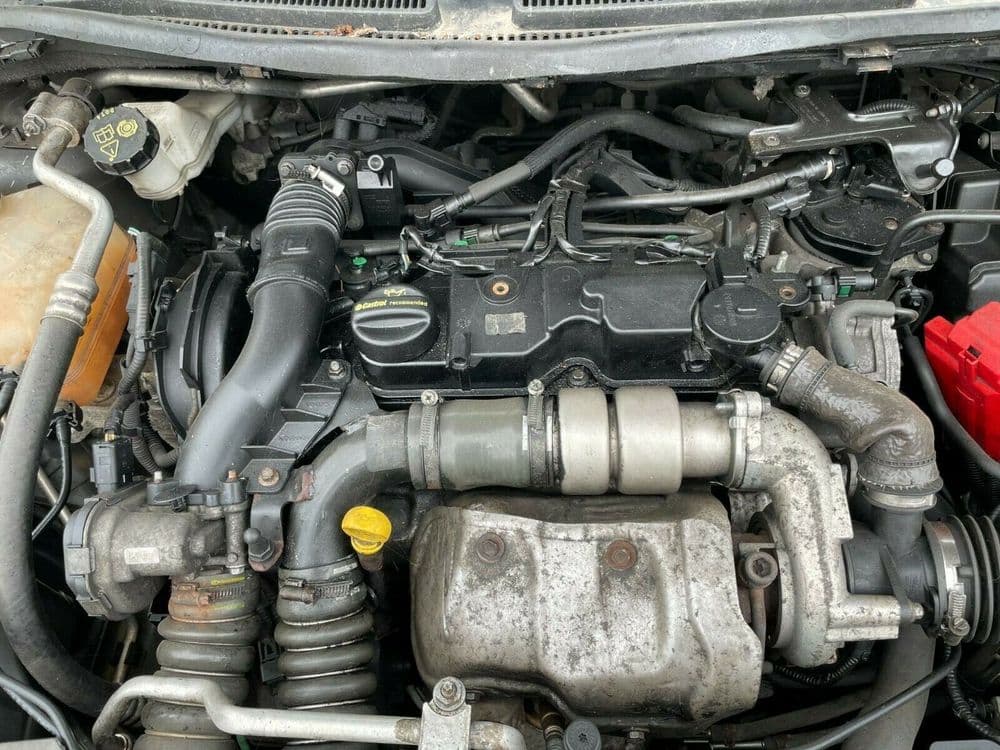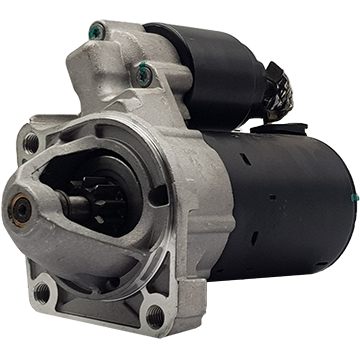Why Regular Maintenance of Your Ford Fiesta Engine Is Essential
Why Regular Maintenance of Your Ford Fiesta Engine Is Essential
Blog Article
The Future of Engines: Innovations Driving Lasting Power Solutions
As the automobile industry browses the critical shift in the direction of sustainability, the future of engines is progressively defined by groundbreaking technologies. Electric engine improvements, along with appealing developments in hydrogen gas cells and biofuels, are reshaping the landscape of power options. The development of crossbreed systems even more complicates this evolution, providing both possibilities and challenges to minimize emissions successfully. Combined with the assimilation of fabricated intelligence in engine layout, these technological strides elevate important questions about their long-lasting practicality and influence on traditional paradigms. What might this imply for the sector and consumers alike?
Electric Engine Advancement
The advancement of electrical engine growths represents a pivotal shift in the automotive and aerospace industries, driven by the urgent need for sustainable options to fossil fuels. This transition is characterized by significant innovations in battery technology, power electronics, and electrical motor layout, which jointly boost the effectiveness and efficiency of electrical engines.
Current technologies have actually caused the development of lighter, extra energy-dense batteries, such as lithium-silicon and solid-state batteries, which guarantee longer arrays and much shorter charging times. In addition, renovations in electrical motor effectiveness, such as using permanent magnets and advanced cooling systems, make it possible for electrical engines to operate efficiently under varying conditions. These improvements not just improve lorry efficiency yet likewise contribute to a decrease in overall power usage.
Moreover, the combination of sophisticated software application algorithms has actually enhanced power monitoring in electric vehicles, enabling regenerative braking and anticipating billing methods. As producers significantly accept electrical propulsion, the auto and aerospace sectors are witnessing a paradigm shift in the direction of greener technologies. This development not only satisfies regulatory needs but likewise straightens with customer preferences for eco-friendly transportation remedies, solidifying electrical engines as a foundation of future lasting movement.
Advancements in Biofuels
As the auto and aerospace sectors increasingly prioritize sustainable power resources, developments in biofuels arise as a corresponding service to electrical engines. Biofuels, originated from natural products such as plants, waste, and algae, provide an innovative opportunity for lowering greenhouse gas emissions and reliance on nonrenewable fuel sources.
Recent research study has actually concentrated on boosting the performance and sustainability of biofuel production. Second-generation biofuels use non-food feedstocks, decreasing competitors with food supply and reducing environmental impact. Additionally, advancements in synthetic biology have enabled the engineering of microorganisms to create biofuels a lot more properly, resulting in higher yields and lower production costs.
Furthermore, the advancement of drop-in biofuels enables seamless combination into existing infrastructure, allowing a smoother transition for sectors commonly depending on nonrenewable fuel sources. ford fiesta engine. These gas can be utilized in present engines without modifications, facilitating their adoption throughout numerous markets
Investments in biofuel technology, along with encouraging plans, are important to drive development and scalability. As the global neighborhood looks for to deal with environment modification, biofuels supply a pragmatic, prompt solution that straightens with the overarching goal of sustainability in transportation and air travel.
Hydrogen Gas Cell Innovation
An expanding number of business and scientists are checking out hydrogen fuel cell technology as a sensible alternative to conventional source of power in transportation and energy systems. This innovation transforms chemical energy from hydrogen right into electrical power through an electrochemical response, with water as the only result, making it an environmentally friendly choice.
The core of hydrogen fuel cells is the fuel cell stack, where hydrogen particles are divided right into protons and electrons. The flow of electrons generates power, while protons move with a membrane to combine with oxygen from the air, developing water. This procedure causes high performance and reduced emissions, positioning hydrogen gas cells as a vital gamer in the transition to sustainable energy.
Substantial improvements have been made in improving the sturdiness and effectiveness of fuel cells, alongside lowering costs with ingenious production methods. Moreover, the advancement of hydrogen production techniques, such as electrolysis powered by renewable resource resources, enhances the sustainability of the total system. As infrastructure for hydrogen refueling expands and production techniques come to be a lot more reliable, hydrogen gas cell innovation holds excellent promise for decarbonizing various sectors, including heavy-duty transport and stationary power generation.
Hybrid Systems and Their Influence
Crossbreed systems represent a substantial evolution in lasting engine technology, merging traditional inner burning engines with electric propulsion to maximize power effectiveness and lower emissions (ford fiesta engine). This twin technique allows vehicles to make use of both source of power, allowing greater flexibility in energy intake and reducing reliance on fossil gas

In enhancement to environmental advantages, crossbreed systems use customers a sensible shift towards completely electric vehicles. They alleviate array anxiety by combining the ease of fuel with find the benefits of electric propulsion, making them an eye-catching choice for a bigger target market.
The Duty of AI in Engine Design
Leveraging innovative algorithms and equipment learning strategies, the auto industry is significantly integrating fabricated knowledge (AI) into engine layout procedures. AI enhances the effectiveness and effectiveness of style by assessing large datasets to determine optimum arrangements and performance parameters. This capacity permits engineers to simulate different operating conditions and anticipate engine habits under several situations, dramatically minimizing the moment and cost related to standard prototyping approaches.
Furthermore, AI assists in the growth of innovative products and burning procedures tailored for sustainability. By enhancing gas effectiveness and minimizing exhausts, AI-driven styles straighten with worldwide efforts intended at minimizing the carbon footprint of automobile engines. Device knowing algorithms can also predict upkeep needs, leading to boosted reliability and durability of engine components.
Additionally, AI is critical in the combination of electrification technologies, such as crossbreed systems, where it can optimize battery administration and power recovery procedures. As the sector moves in the direction of even more sustainable power solutions, the duty of AI in engine style ends up being increasingly vital, driving technology and boosting the performance of future engines. Eventually, the collaboration between AI and engine layout advertises a new period of smarter, cleaner, and much more reliable vehicle innovations.

Verdict
To conclude, the future of engines is being formed by a merging of cutting-edge technologies that prioritize sustainability. Electric engine improvements, biofuel advancements, hydrogen fuel cells, and crossbreed systems collectively add to a considerable decrease in exhausts and ecological influence. Furthermore, the assimilation of artificial intelligence in engine style improves effectiveness and performance. These transformative services highlight a commitment to creating a cleaner, much more sustainable auto landscape, ultimately profiting both culture and the environment.
Electric engine developments, alongside promising growths in hydrogen gas cells and biofuels, are improving the landscape of power options. Furthermore, improvements in electrical you can look here motor performance, such as the usage of long-term magnets and advanced cooling down systems, make it possible for electrical engines to operate efficiently under differing problems. By optimizing gas effectiveness and reducing emissions, AI-driven designs straighten with worldwide initiatives intended at reducing the carbon impact of vehicle engines. As the industry relocates towards even more lasting power remedies, the function of AI in engine layout ends up being increasingly essential, driving development and description improving the performance of future engines. Electric engine advancements, biofuel developments, hydrogen fuel cells, and crossbreed systems jointly contribute to a substantial reduction in discharges and ecological effect.
Report this page